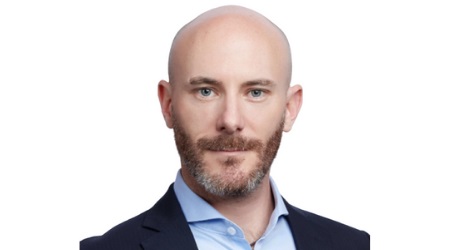
Inner Melbourne Community Legal (IMCL) is widely recognised as being one of Victoria’s leading community legal centres. For over 40 years their dedicated team have been providing free legal assistance to the most vulnerable and disadvantaged members of the community.
IMCL are also a strong voice in the community legal sector, advocating for a fairer legal system. They work on behalf of individual clients, challenging unfair laws and educating the community about the law.
Damian Stock joined IMCL as Chief Executive Officer twelve months ago, we talk to Damian about the challenges faced during Covid-19, his transition from the private sector to the not-for-profit sector and the key elements needed to run a successful not-for-profit.
- What attracted you to the role with Inner Melbourne Community Legal?
I’ve long admired Inner Melbourne Community’s Legal’s mission to enhance community wellbeing through law, and its history of integrated practice – working with partner agencies like hospitals, homelessness services and flexible learning schools – to reach disadvantaged clients who would otherwise not see a lawyer. It’s well known that many people fail to recognise their problem has a legal solution, and fewer still seek legal assistance. IMCL innovates to reach these clients, and designs services based on solid evaluation and evidence.
I was also well aware of the reputation IMCL has for a supportive democratic culture with long term team members – a team that I wanted to join and support.
- You began your new role in February last year, what initial challenges have you faced and how has Covid-19 and the Melbourne lockdown affected the programs planned?
Thanks to being a paperless office we were able to quickly move home when needed, however I was pleasantly surprised to see that were considered integral to our partners who included us in planning their ongoing service delivery.
Our greatest concern was to ensure clients could continue to reach us. We were aware of rising instances of family violence, emerging areas such as COVID fines, and of course concerned that the experience of lockdowns was vastly different depending on a person’s socioeconomic status.
As a new CEO with only four weeks in the office before remote working, a considerable challenge I had was not having enough time to get to know the team, to build relationships and to know how to support them as best I can. Looking back of course I’m grateful that I had those four weeks!
- You worked as a lawyer in the private sector before transitioning to the not-for-profit sector over ten years ago to specialise in community legal, how did you find this move and how has it lead to where you are today?
I never intended to build a career in private practice, but I was aware of the investment and resources that large corporate firms put into developing new lawyers, and the experience was invaluable. I always wanted to work toward social change in some way, and I became enraptured with the power of law to assist people once I commenced volunteering then working in community legal centres. The resources in the not-for-profit legal sector are woefully inadequate to meet the need, leading me to focus on systemic change as much as possible in the organisations I’ve worked in.
- What are the strategic priorities for Inner Melbourne Community Legal?
We focus on fairer outcomes for those who need us most, fairer laws for Victorians and improved wellbeing in our local communities. Our priority is to help our community be heard, always exploring new ways to connect and leading with client voice. Our aim is to break down the barrier between legal and other problems, facilitating partner organisations and our communities to understand and take control of the law.
- What’s your secret for success at this top level?
I don’t know that it’s a secret! Often we are promoted due to being experts at solving technical problems. However when leading an organisation it’s all about enabling others, with the privilege of having a wide view and the space to strategise and connect.
- What elements do you think you need to have in place to run a successful not-for-profit?
It starts with supporting staff who are committed and passionate to achieving the purpose of the organisation. Most people in not-for-profits could make more money in the for-profit sector, so you need to support their drive, assist their development and enable their impact.
A committed and values-led Board that is diverse in skills and experience is also key. They develop and monitor the clear strategy for the organisation and set the culture from the top.
- How did you first come across NGO Recruitment and how would you describe your experience?
My first experience was a phone call to Emma Naglieri to find out more about the role / attempt to impress from the start! I found Emma to be rigorous yet clear and supportive during the process.
